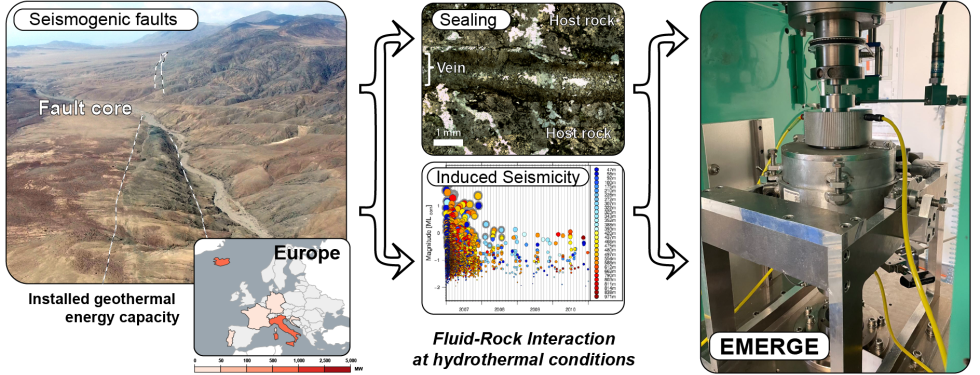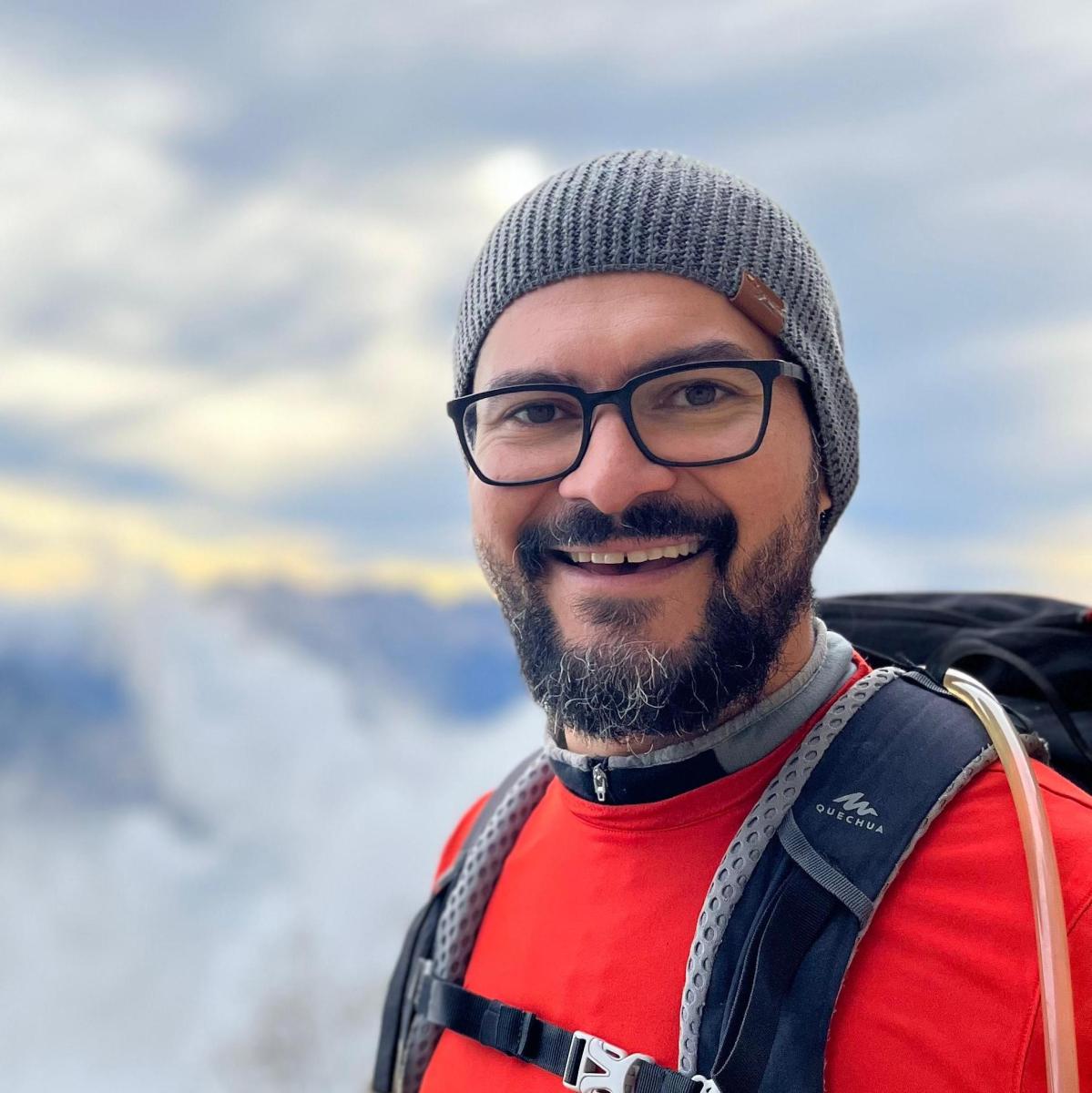EMERGE - Improved Experimental Methodological approach for Earthquakes and Reservoirs characterization focused on Geothermal Energy production


Title: Improved Experimental Methodological approach for Earthquakes and Reservoirs characterization focused on Geothermal Energy production (EMERGE)
Principal Investigator: Rodrigo Alfonso Gomila Olmos De Aguilera | Programme: MUR Young Researcher - MSCA

Geophysical evidences and the investigation of exposed faults exhumed from upper crustal depths indicate that earthquakes nucleate and propagate often in the presence of fluids at “hydrothermal conditions” (150°C < T < 450°C and P > 25 MPa) typical of geothermal systems. However, also because of technical difficulties in performing rock deformation experiments under such extreme conditions, the evolution of frictional properties and the permeability changes of fault materials that contribute to the seismic or aseismic behavior of the fault network is poorly known.
EMERGE propose a very novel and unique experimental approach to unravel how the relations among processes of fluid-rock interaction and tectonic loading (1) change the permeability, (2) change the mechanical properties of faults/fractures and (3) induce the nucleation of earthquakes (natural or man/induced) in geothermal reservoirs under realistic hydrothermal conditions.
To achieve these goals, EMERGE will combine: (1) long-term flow-through shear-experiments in a (2) newly conceived configuration for a hydrothermal vessel installed in a rotary machine apparatus, coupled with (3) microstructural-petrophysical and geochemical characterization of natural and experimental fault rocks and fluids.
EMERGE has the possibility to open a completely new line of research about earthquake driven-fracturing and mineral precipitation in the shallow crust that has a direct application not only with the exploitation of geothermal systems but also in the fields of epithermal ore deposits and CO2 sequestration.





